Bachelor program in Computer Science and Engineering
Bachelor program in Computer Science and Engineering
1. GENERAL INFORMATION
Name of training industry:
Vietnamese: Khoa học và kĩ thuật máy tính
Enghlish: Computer Science and Engineering
Code of training industry: 7480204QTD
Degree: Bachelor
Graduation diploma name:
Vietnamese: Cử nhân Khoa học (chương trình chất lượng cao)
English: The Degree of Bachelor in Computer Science and Engineering (Honors Program)
Time of educate: 4 years

2. SIGNIFICATION AND OBJECTIVES OF ESTABLISHING
Vietnam Japan University (VJU) was established on July 21, 2014 and is the 7th member of Vietnam National University, Hanoi. The birth of VJU is not only the result of the cooperation relationship as an extensive strategic partnership between the governments of Vietnam and Japan, but also the crystallization of the ideas, ambitions and dedication of the two countries. scientists, agencies, organizations and businesses of the two countries.
Computer Science and Engineering is the second training program selected by VJU to open a bachelor’s program after considering ways to promote the strengths of the university, its dedication to the field of higher education in Vietnam and contribute to the development of cooperative relations in many aspects of the two countries of Vietnam and Japan in the new era.
Therefore, unlike other training programs in the fields of Computer Science and Information Science, VJU’s Computer Science and Engineering program has been built on an interdisciplinary basis between computer science and technology. Computer engineering combined with general and necessary knowledge for the 21st century aims to train highly qualified and competitive computer science and technology human resources in the labor market. activities in the country, Japan and other countries in the world in the period of industrial revolution 4.0 and society 5.0.
3. CAREER OPPORTUNITIES
Students after graduation can take up the following positions:
+ Expert in data analysis, software development on different platforms (web, mobile devices,…),
+ Expert in software testing, system analysis, financial analysis; project management on information technology;
+ Researchers at research and development institutes and centers;
+ Lecturer at universities, colleges, professional and vocational schools;
+ Technical staff in the fields of computer science, computer engineering, information technology and applications in the fields of industry, production, economy- society in companies and organizations in Vietnam, Japan and other countries.
+ Graduates have the ability to continue their studies to graduate level (Master, PhD) in computer science and engineering related majors at universities in the country, Japan, and the region and around the world.
4. SUPERIORITY OF THE PROGRAM
4.1 Liberal Arts education
- Provides a broad base of knowledge, including the social sciences and the natural sciences.
- Provides in-depth knowledge of Japan.
- Encourage students to self-study and develop themselves so that they can adapt to the changes of society in the era of Industry 4.0 and society 5.0.
4.2 Applicability
– Provide for students with the ability to develop and creative research ideas in interdisciplinary fields and to develop applied models and solutions of computer science and engineering to achieve the objectives of the problem posed.
4.3 Opportunity to study in Japan right in Vietnam
– In addition to the Vietnamese lecturers, the Program has the cooperation of the lecturers from 13 major Japanese Universities.
– Students will be able to participate in many exchange activities with Japanese students.
4.4 Focus on fostering foreign language ability
– The training program is designed with many modules taught in English, so the student after graduation will have an English level equivalent to B2, level 4 in the 6-step scale of Vietnam Foreign Language Competency Framework. In addition, students can learn basic Japanese and can register for advanced Japanese lessons according to their needs.
– International academic environment with the participation of many international lecturers.
4.5 Modern learning method
– Many modules in the training program use active learning methods (active learning).
– Based on the experience of Japanese universities, the program will introduce seminar format into some modules to develop communication, discussion, teamwork skills and enhance interaction between lecturers and students, between students and students.
4.6 High practicality
– The content of the modules is highly practical, with the participation in teaching of many experienced experts from Japanese and Vietnamese organizations and businesses.
– Students will have the opportunity to interact with organizations and businesses through Internship programs.
5. Program and Learning pathway
5.1 Training Program
The training program consists of 152 credits, which include the following knowledge blocks:
* General knowledge : 21 credits
* Knowledge by field: 33 credits
* Knowledge by industry: 25 credits
* Knowledge by industry group: 17 credits
* Industry knowledge: 55 credits
5.2 Learning Path
The learning path is divided into two main phases:
– In the first 2 years, students will receive general education knowledge, foreign language knowledge and modules that provide knowledge about current global issues of concern, the foundational knowledge of science. and computer engineering in mathematics, physics, and information science.
– Two years later, students will learn the basic modules of Computer Science and Engineering, then can choose specialized directions in Data Science, Artificial Intelligence, Software Engineering, Financial Technology. Main course or Informatics for engineering or in-depth orientation guided by lecturers, the orientations are given on the basis of the current needs survey results of Vietnam and are also the orientations that can promote the strengths of Vietnam Japan University.
6. LECTURER
Lecturers of the Computer Science and Engineering program include lecturers from Vietnam Japan University, long-term dispatched lecturers from partner universities, research institutes and Japanese enterprises, lecturers in the field of computer science and technology inside and outside Vietnam National University, Hanoi, research institutes and enterprises in Vietnam. This is a force of highly qualified, integrated, multidisciplinary and experienced staff, ensuring the operation of training programs according to the philosophy of education for sustainable development.
The University of Tokyo is the main partner of the training program, represented by Prof.Dr. Ishikawa
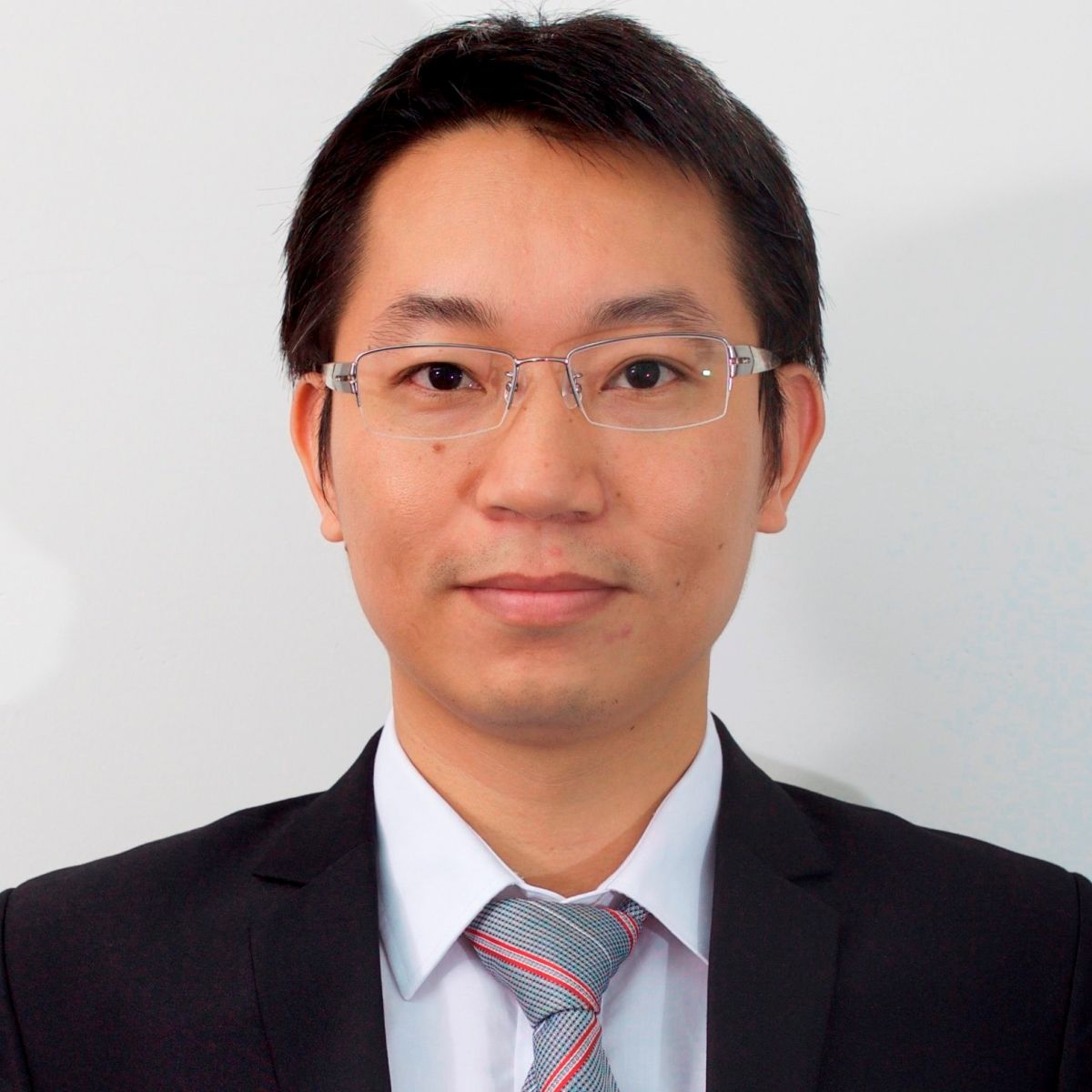
Dr. Nguyen Hoang Oanh
Program Director
Math, Physics
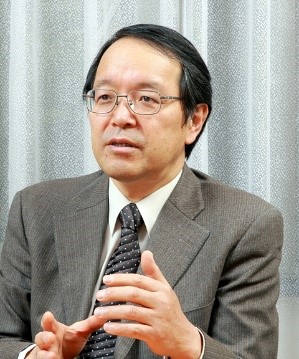
Prof.Dr. ISHIKAWA Masatoshi
Advisor to Program
Information Technology
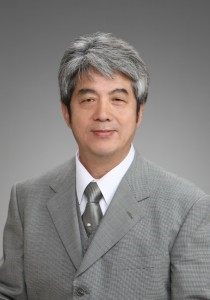
Prof.Dr. Kasai Hideki
Osaka University, VJU
Math, Physics

Prof. Dr. Sc. Nguyen Dinh Duc
VNU
Mechanics and materials
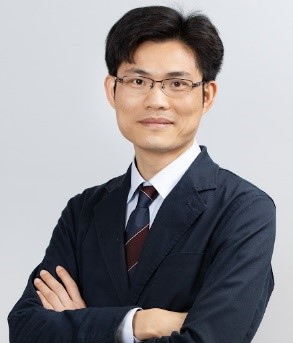
Assoc.Prof.Dr.Phung Duc Tuan
Tsukuba University
Information Technology

Dr. Hino Yoshifumi
VJU
Business Administration

Assoc.Prof.Dr. Takeda Shinichi
VJU
Transportation Engineering

Dr. Tamura Makoto
Ibaraki/VJU University
Climate Change
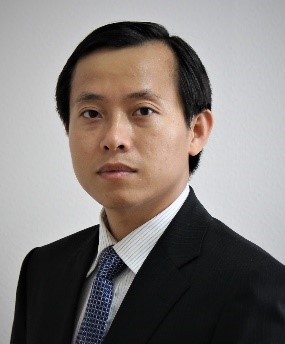
Dr. Nguyen Van Triet
Tsukuba University
Information Technology
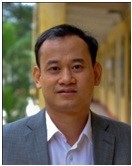
Assoc.Prof.Dr. Vu Viet Vu
IT Institute, VNU
Information Technology

Assoc.Prof.Dr.Nguyen Ha Nam
IT Institute, VNU
Information Technology

Dr. Nguyen Duong Nguyen
Japan Advanced Institute of Science and Technology
Data Science

Dr. Le Viet Gia Khanh
Google Japan/MiaTech Inc
Information Technology
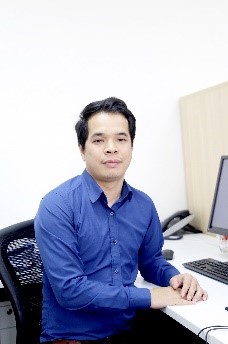
Dr. Pham Tien Thanh
VJU
Electricity–Electronic
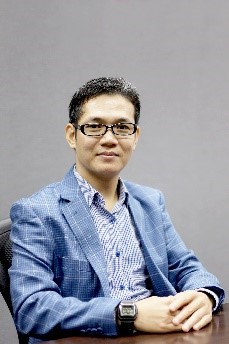
Assoc.Prof.Dr.Bui Nguyen Quoc Trinh
VJU
Materials science

Assoc.Prof.Dr. Tran Thi Thanh Tu
VJU
Finance – Banking
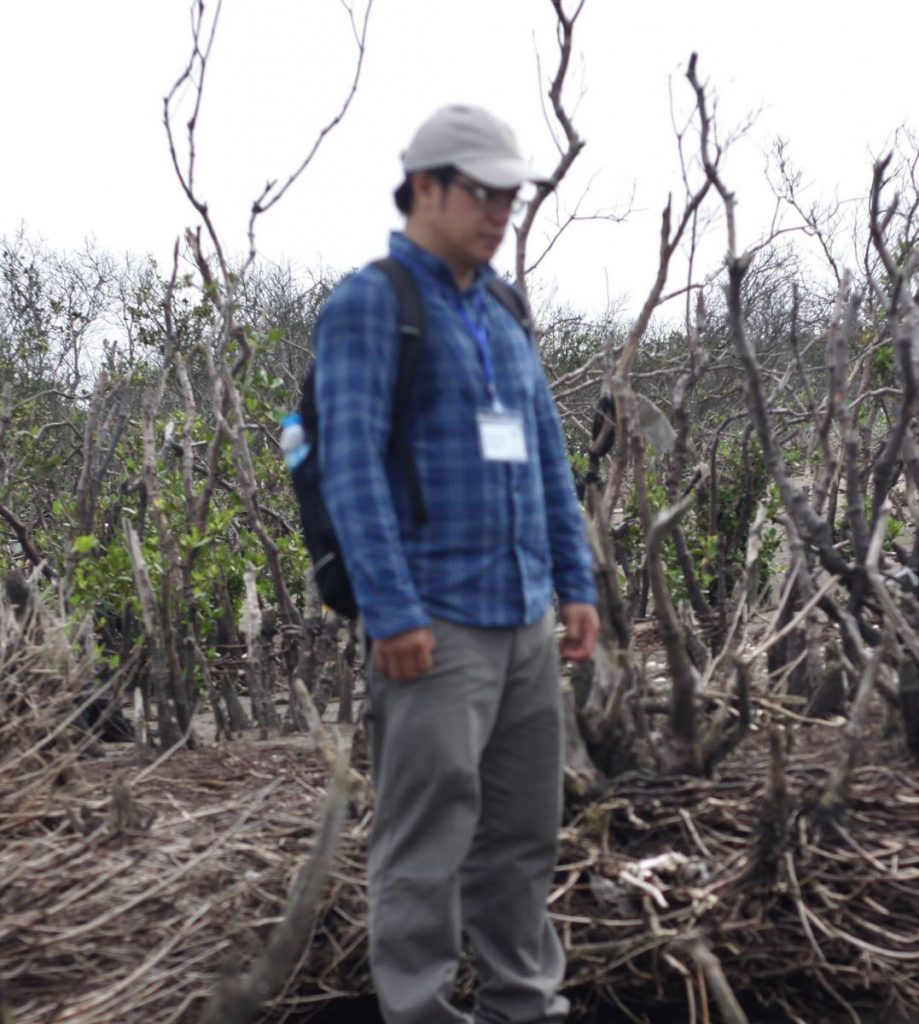
Dr. Nguyen Van Quang
VJU
Geoinformation
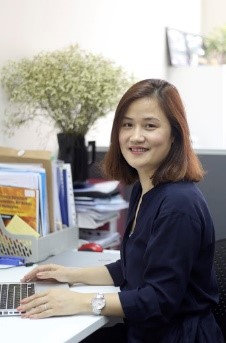
Dr. Phung Thi Viet Bac
VJU
Math – Physics

Dr. Nguyen Thi An Hang
VJU
Environmental Engineering

Dr. Dang Thanh Tu
VJU
Environmental engineering

Dr. Hoang Thi Thu Duyen
VJU
Environmental science

Dr. Nguyen Thi Thuy Hang
VJU
Geoinformation

Dr. Vu Hoang Linh
VJU
Economics

Dr. Dang Quang Vinh
VJU
Economics

Dr. Tran Luong Thanh
VJU
International economy

Dr. Tran Thi Viet Ha
VJU
Environmental engineering
7. Program Curriculum
See more details in here.
8. Scholarships and tuition assistance
At least 20% of students receive full or partial scholarships; There are also enterprise-sponsored scholarships for Hanoi National University.
9. Program's Activities
10. Typical students/ Alumni
11. ADMISSIONS
| Target | Application deadline | Interview | Notìication of Result | |
|---|---|---|---|---|
| 1st Admission | Both Vietnamese and non-Vietnamese applicants | Apr 20 | May 04-05 | May 10 |
| 2st Admission | Both Vietnamese and non-Vietnamese applicants | June 29 | Jul 13-14 | Jul 24 |
| 3st Admission | Both Vietnamese and non-Vietnamese applicants | Aug 23 | Sep 14 | Sep 20 |
2022 Admission Targets: 80 students / course
Admission method:
* Admission is based on the results of the assessment of qualifications (including academic records, achievements in high school.., interviews)
* Admission in another way:
– Admission is based on High School Exam Result in year.
– Admission of international foreign language certificates (English, combined with 02 subjects of high school graduation exam in year).
– Admission of results on the SAT
– Admission of A-Level Certificate
– Direct admission and admission to specialized high schools
– Direct selection of candidates to participate in international competition teams or win national prizes
– Admission is based on the results of the competency assessment exam of VNU
12. LEARNING OUTCOME
1. Knowledge and professional capacity
1.1. General knowledge
- PLO1: Apply knowledge of philosophy, economics, ideology of the Communist Party, Scientific Socialism into study, research and work.
- PLO2: Correct perception of political, security and defense issues.
1.2. Knowledge by field
- PLO3: Apply basic knowledge of natural science and engineering, social science and humanities, management, coordination as well as necessary knowledge and skills in the 21st century to professional activities in the field of computer science and engineering.
1.3. General knowledge of the related sciences
- PLO4: Apply knowledge of mathematics and basic science, computer science and specialized foreign languages to study and research to handle problems related to the fields of computer science and engineering, such as software technology, artificial intelligence, microchip design, analysis, and information system design.
1.4. Fundamental knowledge of the major
- PLO5: Apply fundamental knowledge of the major including software technology, data structures and algorithms, data analysis and artificial intelligence, embedded systems and IoT, microchip design, database, information system design analysis to research and develop solutions in the field of computer science and engineering.
1.5. Specialized knowledge of the major
- PLO6: Apply specialized knowledge in the fields of data structures and algorithms, database, information systems design and analysis, software technology, data analysis and artificial intelligence, embedded systems and IoT, and microchip design in building and developing scientific and technical systems and products.
- PLO7: Apply new knowledge and technology in Computer Science and Engineering to analyze research ideas in interdisciplinary fields.
2. Learning outcomes for skills
2.1. Professional skills
- PLO8: Demonstrate the ability to analyze and evaluate modern technology trends to create employment opportunities for oneself and others in the field of computer science and engineering.
- PLO9: Demonstrate the ability to research, experiment and discover new knowledge in the field of science and technology.
- PLO10: Develop research ideas in interdisciplinary fields and implement a model and applied solution of computer science and engineering to achieve the goals of the given problems.
2.2. Supplementary skills
- PLO11: Communicate effectively in words, writing, discussion, presentation, negotiation, and can use modern tools and support equipment to improve work efficiency.
- PLO12: Meet the requirements for English level 4 according to the 6-level Foreign Language Competency Framework for Vietnam.
- PLO13: Demonstrate the ability to organize, arrange work, work in groups, lead, life-long learning, and plan for self-development.
3. About moral qualities
- PLO14: Demonstrate serious, modest, honest and integrity working attitude and style in work and professional activities; respect the law, comply with regulations and discipline in work, professional activities as well as other activities in social life.
4. Level of autonomy and responsibility
- PLO15: Demonstrate the ability to be responsible, enthusiastic, trustworthy in work, a sense of responsibility towards the society and a sense of community service, a sense of protection and action against negative factors that affect and damage work and the sustainable development of the professional field.
13. CONTACT INFORMATION
Add: 5th Floor, My Dinh Campus, Luu Huu Phuoc Street, Cau Dien Ward, Nam Tu Liem District, Ha Noi, Viet Nam.
Phone: (+84) 24 73066001 – Ext 5093
Hotline: (+84) 966 954 736 (Zalo) – (+84) 96 96 38 426
Email: admission@vju.ac.vn

